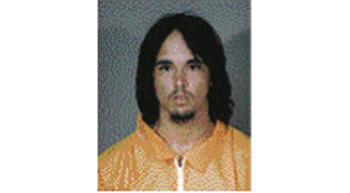LIHU‘E — A panel of three psychiatrists has found Payton Rapozo mentally fit to stand trial for murder. Rapozo, 22, is accused of second-degree murder for the shooting death of Antonio Torres, 43, at a Kawaihau Road residence in Kapa‘a
LIHU‘E — A panel of three psychiatrists has found Payton Rapozo mentally fit to stand trial for murder.
Rapozo, 22, is accused of second-degree murder for the shooting death of Antonio Torres, 43, at a Kawaihau Road residence in Kapa‘a in October of last year. Rapozo is also charged with firearms violations related to that shooting.
The O‘ahu-based psychiatrists prepared written reports given to 5th Circuit Judge Kathleen N.A. Watanabe, who ruled Tuesday that Rapozo is “fit to proceed” to trial.
But Nelson Goo, the court-appointed, Honolulu-based attorney representing Rapozo, said two of the three psychiatrists also found Rapozo not “penally responsible,” meaning they believed that while he is now mentally stable, he did not have the ability to understand and appreciate his behavior or was not able to conform his behavior to be lawful at the time of the Oct. 12 incident.
Lori Wada, first deputy prosecuting attorney, said that while all three doctors agreed Rapozo is fit to proceed to trial, two of the three found Rapozo “substantially impaired” at the time of the shooting.
“His mental status will be an issue with this motion,” Goo said in court, referring to his motion to suppress Rapozo’s statement to police following the shooting.
Goo told Watanabe that it could take up to 45 days to get the three psychiatrists together for a video teleconference, and that they will likely be subpoenaed to appear in Watanabe’s court when and if the case goes to trial.
Watanabe set a date of Aug. 11 to hear Goo’s motion to suppress, and to set a trial date.
Rapozo, wearing his hair in a pony tail and an orange shirt and orange pants indicative of his inmate status, said only two words in court — “Um, no” — when asked by Watanabe if he had any objections to the date of the hearing.
Rapozo is confined to Halawa Correctional Center near ‘Ai‘ea on O‘ahu. His mother and some other family members were also in court, but did not want to speak to reporters after Tuesday morning’s proceedings.
Goo explained outside the courtroom that the psychiatrists’ reports, commonly known as a “three-panel” or “three-panel examination,” attempt to ascertain a defendant’s mental state not only at the time of the examinations, but also at the time of the alleged incident.
There are two issues, Goo explained: fitness to perceive proceedings and participate in and help with his own defense — which the doctors unanimously agreed Rapozo is capable of; and penal responsibility, the ability to understand and appreciate his behavior or conform his behavior to be lawful at the time of the incident — which two of the three doctors said Rapozo was incapable of.
“That might be a trial issue,” Goo said of the penal-responsibility portion of the examinations, which attempt through interviews of Rapozo and other witnesses, review of police reports, and other means, to reconstruct Rapozo’s state of mind and other facts at the time of the alleged incident.
Goo also said that he may pursue a temporary-insanity defense in this case.
In his earlier motion to suppress Rapozo’s statement to police following the shooting, Goo argued that Rapozo was under a psychiatrist’s care, not taking prescribed medication at the time of the incident, was under significant stress, and “may have ingested substances,” all factors that made it impossible for him to “knowingly, voluntarily and intelligently waive his Miranda rights” that allow suspects under arrest to remain silent or consult with an attorney before answering questions from police.
Goo said earlier that Rapozo quit taking his medication because he could not afford it.
Wada said that a voluntary decision by Rapozo to quit taking prescribed medication for a mental condition could be used as a defense in this case, but it would be up to the judge and jury to determine if such a defense would prevail at trial.
While not wishing to tip her hand on how the prosecution might proceed in the face of what might be an insanity defense, Wada did say that the prosecution will focus on the facts of the case, and argue that if Rapozo was in control of some things at the time of the shooting — for example, the gun and the decision to shoot it — how can it be argued that he was not in control of certain other things, like his mental state at the time of the shooting?
Wada said she could not disclose results of ballistics tests on the weapon believed to have been used in the crime, nor results of a police search of Torres’ vehicle where other firearms reportedly were located, as the police reports are not public record.
Torres had dated Rapozo’s mother, and Torres allegedly threatened Rapozo’s mother and other family members shortly before the shooting.
• Paul C. Curtis, staff writer, can be reached at 245-3681 (ext. 224) or pcurtis@kauaipubco.com


